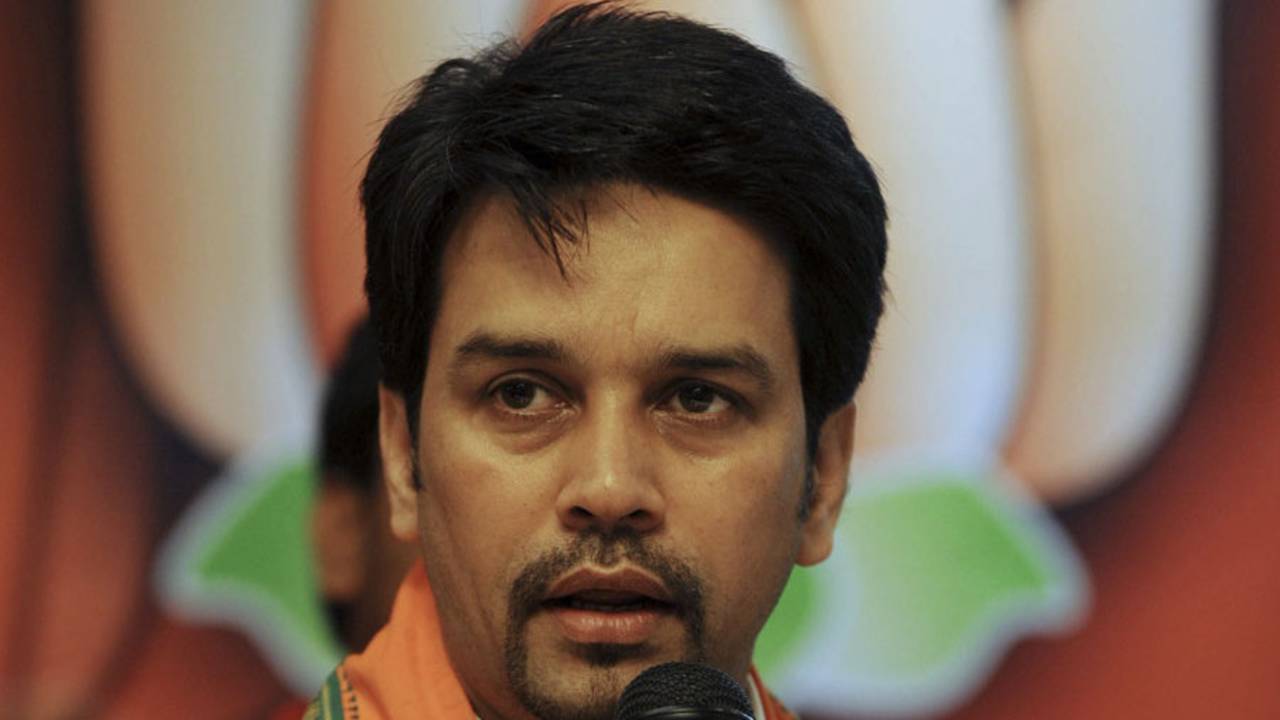When the dust had settled on the BCCI elections, one thing was clear: the board would no longer be controlled by one man or group. The identities of the elected officials made that clear. Seven of the nine were from the N Srinivasan camp; the president - the most important person in the BCCI - was elected unanimously but is understood to be closer to Srinivasan than the opposition; but the second most powerful position - the secretary - was won by Anurag Thakur, the face of the Sharad Pawar group and a man with his own ambitions.
While Pawar's group claimed Dalmiya was a consensus candidate, the fact remains that they could not get two nominations from the east zone for Thakur to stand for president. All six votes from the east zone were secured by the Srinivasan camp, which struck a deal with Jagmohan Dalmiya: they would back him in the election if he allowed Srinivasan to continue as ICC chairman after he won.
In the end each group cancelled the other out, which was why, despite having numbers on its side, the Srinivasan camp was not happy after the election while the Pawar group, despite only one of their five candidates winning, were pleased. While the Srinivasan camp made a quiet exit from the hotel, where all sorts of bargaining and pressure tactics had been applied over the preceding 48 hours, the Pawar camp stayed longer.
It is not yet clear how the BCCI's power structure will play out. The first indications will emerge once the special sub-committees of the board are announced. That's usually done at the AGM but there was no consensus over the heads of major sub-committees - marketing, finance, IPL governing council, and tour and fixtures programme - and so Dalmiya and Thakur were authorised to finalise their composition.
Pawar was bullish after the election. "We have been successful in shifting the BCCI headquarters from Chennai to Mumbai," he told ESPNcricinfo. "An impression was constantly created that they had an overwhelming majority. It was even presented in court, through Srinivasan's counsel, that the board was unanimously backing him. Today's election has set things straight. All the posts were decided by a margin of one or two and the most votes they got was 16, including that of the chair."
Pawar emphasised his belief that it was the end of Srinivasan remote-controlling the BCCI even after being forced to the sidelines. "It's the end of the one-man show that prevailed over the last few years. Now on, you will see a different picture emerge in the BCCI meetings. Dalmiya and Anurag would establish a new system."
The lasting memory of the election, however, was not Dalmiya's return after a decade, Srinivasan's tired face, Pawar's smile, or Thakur's victory sign for the television cameras. It was of CK Khanna causing the biggest upset by beating Jyotiraditya Scindia by one vote to be elected central zone vice-president. It was one of many close margins on a day when power in the BCCI shifted from a point to a triangle.
